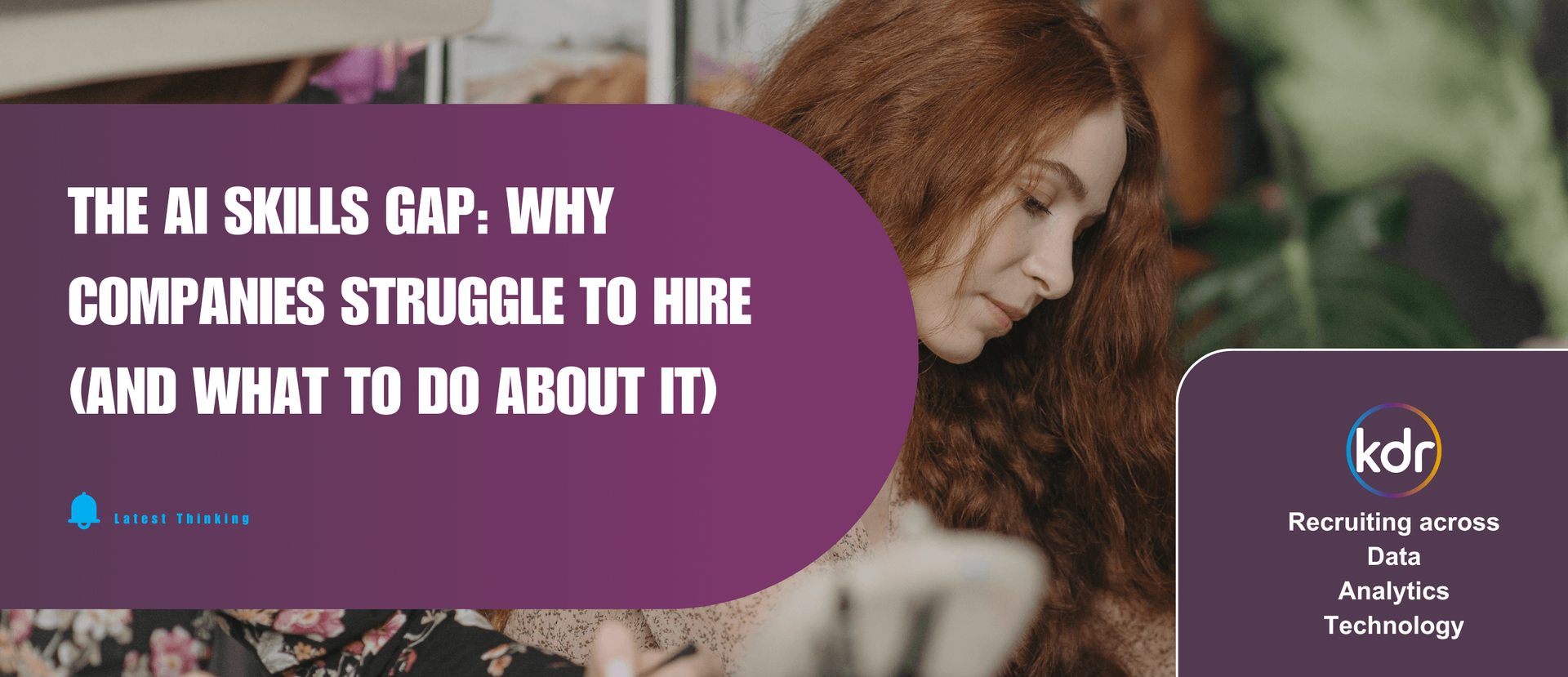Driving sustainability - key insights from the State of Data and Cop 29
As COP29 runs this week, sustainability is transitioning from a corporate responsibility initiative to a regulatory mandate

As COP29 runs this week, sustainability is transitioning from a corporate responsibility initiative to a regulatory mandate, particularly in the UK. KDR’s latest "State of Data" report reveals how the rise in sustainability regulations is reshaping data strategy and tech infrastructure across industries. With data and tech professionals facing the challenge of integrating sustainability into core operations, the report’s insights provide guidance on navigating compliance and leveraging data for sustainable growth.
The Role of Data Engineering and Google Cloud Platform (GCP)
Under the new UK Sustainability Disclosure Requirements (SDR), data engineering will be crucial for handling the large volumes of data needed for climate-related reporting. Google Cloud Platform (GCP) allows organisations to consolidate data, reducing the reliance on energy-intensive, on-premises data centres while using scalable tools aligned with SDR’s data demands. Companies adopting GCP for data engineering can streamline their data infrastructure and reduce carbon emissions, helping them meet SDR’s rigorous reporting requirements.
Artificial Intelligence (AI), particularly large language models (LLMs) embedded in SaaS applications, plays a key role in environmental impact predictions and sustainability modelling. KDR's research within the State of Data indicates that companies adopting AI not only boost efficiency but enhance their ability to comply with regulations such as the Task Force on Climate-related Financial Disclosures (TCFD). By using LLMs, companies can detect patterns, assess risks, and simulate sustainable strategies, supporting SDR compliance and setting a global example in sustainable innovation. As always the challenge found by many is attracting and retaining the right skill sets needed for the job as well as budgetary constraints.
Data Management and Digital Analytics: Meeting Complex Compliance Standards
The complexity of UK regulations—especially SDR and TCFD—places high demands on data management. For UK companies, data management systems must be robust, transparent, and capable of delivering accurate sustainability data for auditing purposes. KDR’s State of Data report underscores the importance of data governance to ensure information is both reliable and readily available. Analytics allow digital and data teams to monitor sustainability metrics in real-time, helping businesses achieve compliance with minimal delays and maximise carbon reporting accuracy.
The Future of Data and Sustainability in the UK
COP29’s emphasis on digital sustainability aligns with the report’s focus on future-proofing data strategies. By 2025, KDR anticipates a stronger emphasis on AI, data literacy, and data quality as businesses adapt to sustainability standards that continue to evolve. This shift points to a workforce where data professionals skilled in sustainable practices, AI ethics, and environmental analytics will be in high demand. As companies prepare for future regulatory developments, investment in data talent and technology will be essential to stay competitive.






